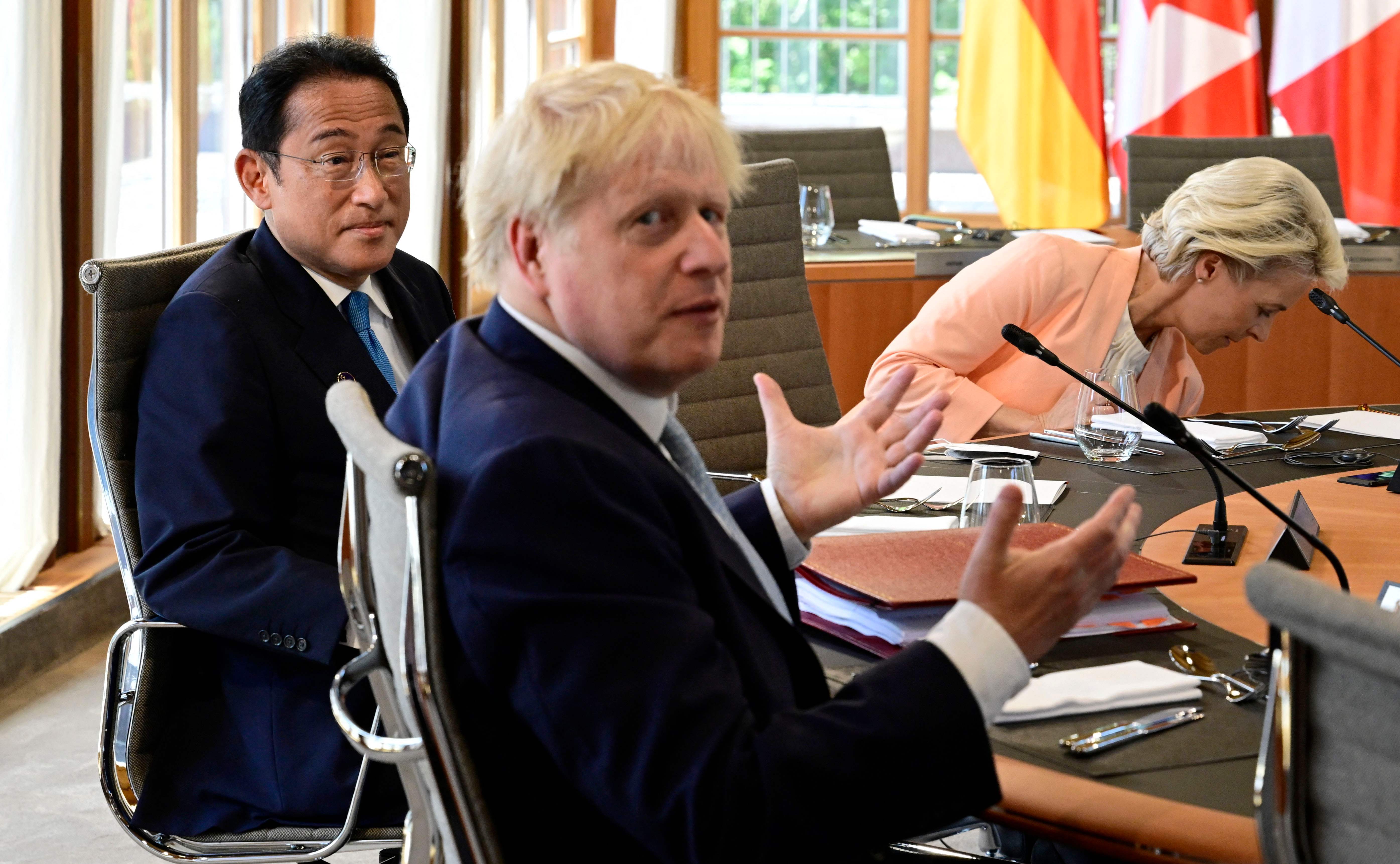The challenges Europe currently faces require moral leadership – not delusion
Editorial: The prime minister believes that he does not have to change his style, and that is profoundly troubling at this dangerous moment for the world

Paul McCartney’s stunning headline performance at Glastonbury has shown the world that if you are really good at something, you can go on doing it to acclaim at the age of 80.
Sir Paul is really good at what he does. He has extraordinary talent and has earnt deep public affection. Boris Johnson may have a certain talent, but has destroyed whatever public respect he might have had. So the idea he floated that he might serve not just a second, but a third term as prime minister is deeply delusional. Indeed, it shows how detached he has become from the reality of his position. He believes that he does not have to change his style. Well, maybe he can’t, and that is profoundly troubling at this dangerous moment for the world.
The G7 summit in Bavaria is taking place against the background of these dangers. At the centre are three broad challenges. The first is how the west should continue to respond to the invasion of Ukraine by Russia; the second, how the environmental and humanitarian challenges should be tackled; and third, how the G7 countries should manage their relationship with the emerging world, a relationship made more complex by Russia’s action. These challenges are closely linked.
Until now, the US, UK and EU have remained solidly aligned both in their support for sanctions against Russia and in giving military aid to Ukraine to try to resist the invasion of its territory. But it may be harder to maintain a common front in the months ahead as the costs continue to mount. Europe is vulnerable to the possibility, perhaps probability, that Russia will cut off gas supplies, leading to rationing and consequent economic disruption. Even if rationing is avoided, the rising costs of both oil and gas have already contributed massively to the surge in inflation. The combination of the war and the response to it is hitting the living standards of almost everyone on the planet.
That toxic mix is also undermining efforts to cut carbon emissions, a crucial element driving climate change. Coal is making a comeback, with Germany, Austria and the Netherlands announcing an emergency restart of coal-fired power stations. The UK has similar plans.
Alongside the environmental burdens of the war, and the policy response to it, are the wider humanitarian costs caused by rising food prices. From a UK perspective, there is the prospect of a 15 per cent increase in food prices this summer. Similar increases will occur across Europe. But if it is troubling that families in the developed world will be paying more for their food, how much more so it should be that in the emerging nations there is a real threat of famine.
Last month the UN explained how the war has come on top of the pandemic, further increasing the plight of the poorest. It pointed out that Ukraine provided food for 400 million people and warned that 49 million were now at the risk of famine. Protests at the summit reflect these rising concerns.
To keep up to speed with all the latest opinions and comment, sign up to our free weekly Voices Dispatches newsletter by clicking here
This leads to a further and more general concern. It is the extent to which the gap between the G7 countries, representing the established developed world, and the emerging nations has widened even further as a result of the war.
From the perspective of the UK, US, Japan, Europe, Canada, Australia and so on, there is a clear moral position. It must be right to oppose the invasion and support Ukraine by all practical means, but that is not at all clear in a country where your people may starve. The harsh and disturbing reality is that those who urge even tougher sanctions against Russia are, in practice, advocating actions that will hurt the poorest people on the planet.
So the west must explain better what it is doing and why. It must, of course, help those hardest hit in the developed nations, but also remember the plight of people in other countries that are not involved in this conflict – yet suffer as a result of it.
To win wider support for this effort to contain Russian aggression requires persuasive leaders with a clear moral compass. Unfortunately, the UK does not currently have such a prime minister.



Join our commenting forum
Join thought-provoking conversations, follow other Independent readers and see their replies
Comments